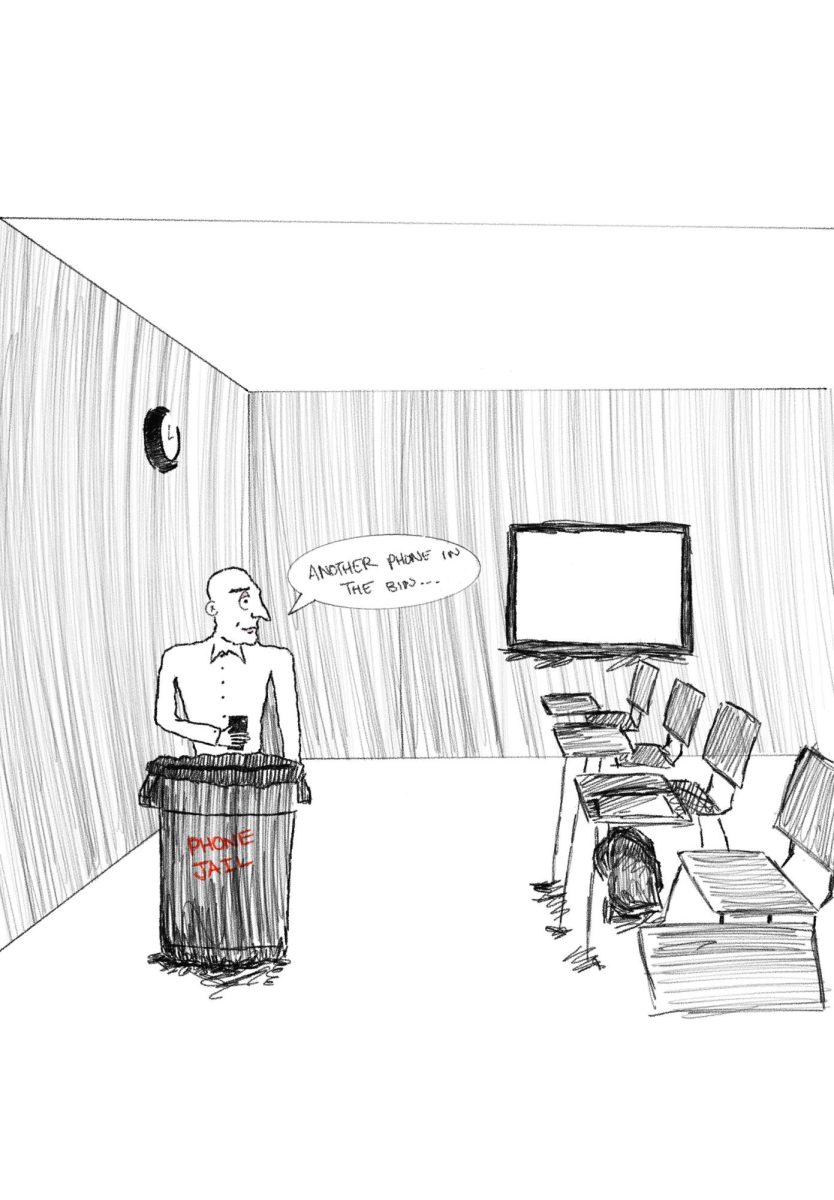With South students entering their ninth, 10th, 11th or even 12th back-to-school season, that first September Tuesday feels more and more like the same old song and dance. Students mechanically walk through the halls to their first hour classes, every rule and routine memorized by heart as is true for those who have reached the final stage of their K-12 education. This year, however, administration has added a new verse to the daily dance with the implementation of “phone jails,” a stop students must make as they enter each and every classroom to turn in their cellphones.
Though the constantly developing technology of this generation has proven to introduce a variety of distractions to students, it’s also come with the responsibility for kids to learn how to include their phones in their own learning environment. We at the Tower believe that in the classroom, phones should be used appropriately and intentionally, not in a disrespectful manner. With an unavoidable presence, phones should be seen as an opportunity for teenagers to learn independence and responsibility, a step towards their future without an administration to regulate it.
For many Grosse Pointe Public Schools students in 2024, the updated phone policy feels like a large jump from the practices of recent years, and even more so like a district-wide vendetta against the technology students have grown so accustomed to. However, these new cell phone rules are growing on a scale larger than just our school district, and teenagers across the country are experiencing the same daily frustrations of those in our local schools. According to the National Center for Education Statistics, going into 2024, 77% of public schools in America have a ban on using cell phones for anything non-school related, some of them even state-mandated.
Since late 2022 when Open AI introduced Chat GPT, the education world has been at a crossroads in terms of technology usage. Some schools have outright banned it, others have taken a slower approach and chosen to assess it. Grosse Pointe Schools has yet to release a district-wide approach to Chat GPT, instead confiscating the source. These new phone policies are school’s reactions to how new technology could be used, a step around taking action to incorporate them in an educational way. We are seeing the start of how the education system will deal with new technologies in the future.
We at the Tower believe that the extreme administrative rules being forced into learning environments distract from the benefits cell phone access can have for students, and the powerful tool online resources–such as artificial intelligence–can be for learners when used appropriately. Confiscating phones at the start of every class prevents students from understanding these things at an early age, and teaches them to fear the use of technology moving into the independence of higher education and adulthood.
Many students know that phones are not always an asset to education, but necessary for safety and communication. Students and parents alike share worries that, in case of an emergency, there may not be a way to contact family members to help get to safety. The conversation of having technology accessible in the classroom has grown beyond them being a distraction, but being a need for safety purposes; in the age we live in, this is a crucial conversation to have when considering new cell phone regulations within public schools.
We at the Tower believe that there is no set list of distractions that can have an effect on a student’s education, and the position cell phones hold in such a category is unique to individual capabilities and preferences. While the advancements of technology seen in the 21st century have reached our pockets, cell phone confiscation during class periods can do nothing to diminish or remove the permanent place modern technology holds in students’ lives. Rather than perceiving cell phones as an enemy, it is crucial we as a community learn to embrace them as an opportunity, and one that isn’t going away.












































































